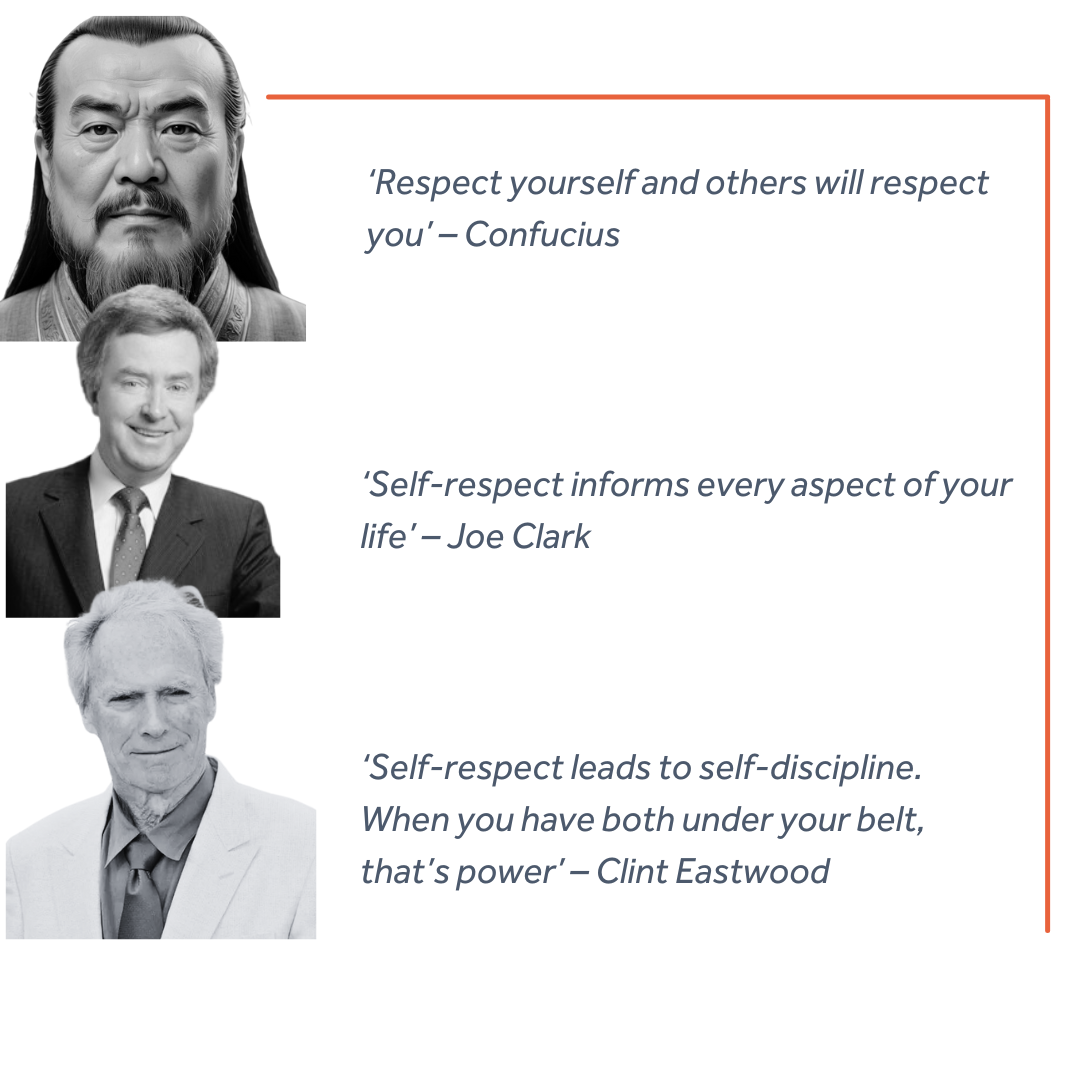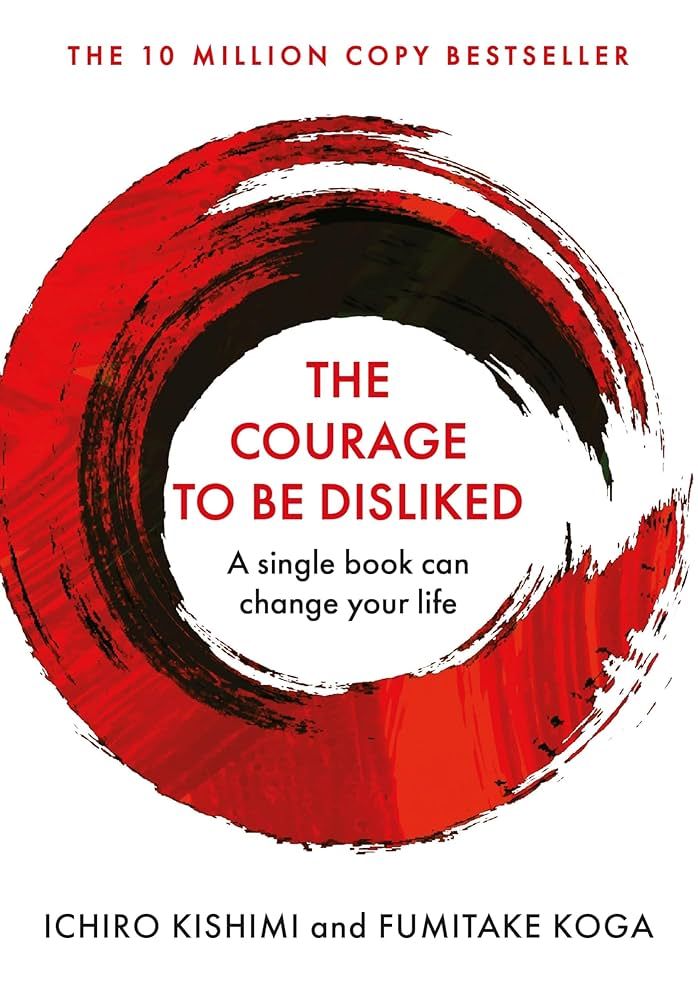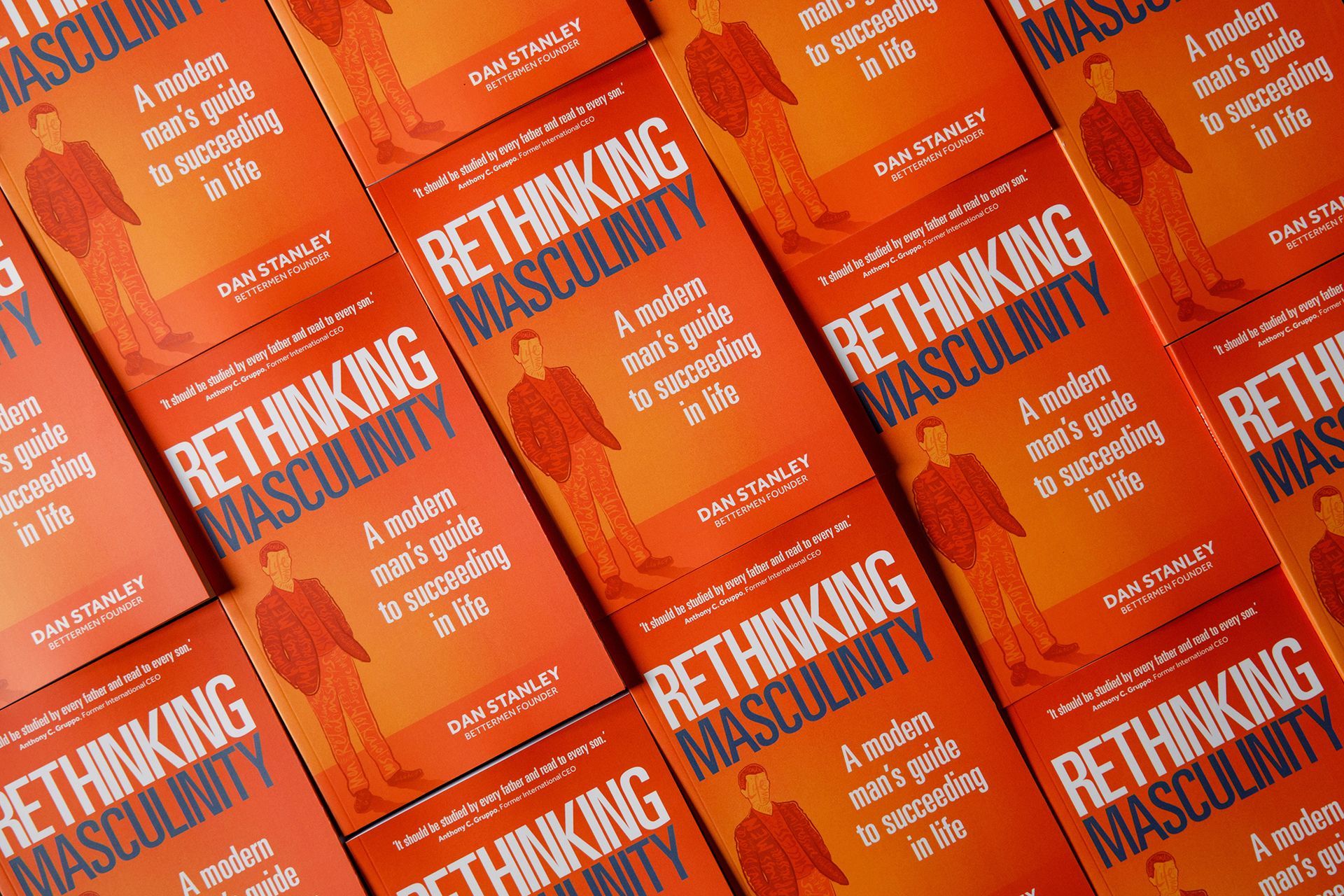December 2024
Navigating Festive Stress: A Guide for Men
Self-Respect: Maintaining Well-being During Holidays.
Life is busy and time is precious, especially in December! My monthly bulletin saves you time and effort by providing you with a range of resources relating to all thing’s men, mindset and success.

Before I share the usual useful resources, here’s a segment to help you better manage the festive season…
Behind the forced smiles and the Christmas jumpers, reality exists in stark contrast with the picture-perfect ‘festive fun’ image the world projects around Christmas...
Across the country, sat alongside the festivities factor, which now starts in November, the Christmas period can also be a season of significant emotional, mental and financial stress. For many men, particularly those running businesses, in professional careers or navigating the challenges of blended families, they can find themselves feeling guilty of ‘keeping up appearances’ during Christmas and the New Year period.
Immersed in the light-heartedness of festive films, clever, targeted advertising and Christmas-themed TV shows, everyone seems to be enjoying themselves and living their best life; but behind closed doors, fake smiles, the reality is often different. In a report commissioned by the Priory Group, 53% of male respondents said they felt lonely at Christmas, despite being in the company of others. In a recent YouGov poll, 35% of men said they found Christmas stressful and 41% were worried about overspending.
Across my years of coaching, around Christmas time, I often hear clients say, ‘Why am I not enjoying this?’ or ‘Why can’t I relax’, and are left perplexed, wondering, ‘What’s wrong with me?’ If you feel the same or hear yourself saying similar, know you’re not alone. A survey by the Mental Health Foundation found that 26% of people say that Christmas time makes their mental wellness worse.
There’s a multitude of reasons men might not enjoy Christmas. They might find seeing family members stressful, worry about childcare arrangements, perhaps additional travel, buying presents, balancing festive spending, and trying to manage their desire to be a present parent with their workload.
Prolonged stress over the festive period can lead many men to begin the New Year already fatigued and already struggling to manage their lifestyles. For men who have a history of feeling frustrated or expect to find the festive season a struggle, I advise the three C’s:
Create Space – we all recognise common sense isn’t always common practice, so to begin with, create some space or take time away from the sources of stress – even if it’s your partner or dependents. It could be that you have a daily, festive ritual (that others are aware of in advance). Start the morning, or evening with a short walk; seek fresh air, get some space, listen to relaxing music – be outdoors.
Check-In – as ‘they’ say, a problem shared is a problem halved. Check-in with a trusted person, whether a friend or a family member; use that time to share, vent, decompress and externalise unhelpful thoughts and feelings. Feeling trapped, mentally, or emotionally, will only amplify festive woes. Think, in advance, who’s the one person I can turn to if I feel the need to decompress…?
Consciously Consume – we are what we eat, we become who we spend time with; I’m extending this thread to include what we consume, specifically mindless scrolling and boxset bingeing. Bringing awareness to what we’re eating (and drinking), who we’re spending time with, and our usage of technology can improve our festive experience. Be conscious… If possible, aim to be proud of your choices…

Don’t just read the quotes. Instead, take a moment to consider them and hold them up against your life.
This month’s quote theme is: Self Respect.
Self-respect is crucial for busy, middle-aged men because it forms the foundation for their well-being, relationships, and decision-making. High levels of self-respect can’t happen, or be achieved unless a man values himself, sets boundaries and prioritises self-care/time for himself - even amidst the demands of work, family, and societal expectations. Perhaps you can relate? When men respect themselves, they make healthier choices, maintain their mental and physical health, and build stronger, more authentic connections with others.
However, many middle-aged men neglect themselves due to the pressures of providing for their families, advancing their careers, and conforming to traditional notions of masculinity; they subtly slide into a state of self-sacrifice over self-care. Over time, neglecting self-respect can lead to a sense of middle-aged malaise and low energy; it can strain relationships and level a man with a diminished sense of purpose. Reclaiming self-respect takes work but the reward is significant, it enables men to re-invent themselves, to make life happen for them instead of letting life happen to them… Take a moment to consider the quotes below:


As we approach the end of the year use this as an opportunity to sit down, to take a minute, to read, reflect or journal on the prompts presented below.
This month’s prompt theme is: Why the past is often the best predictor of the future.
Learning from the past is essential for personal growth. The past offers valuable insights into what worked, what failed, and why, helping us navigate the present and future more effectively. Self-reflection plays a crucial role in this process, allowing us to evaluate our actions, understand our patterns, and make meaningful improvements. By identifying past mistakes, we can develop strategies to avoid repeating them, thus bettering our futures.
However, to caveat this theme, learning from the past does not mean dwelling on it. Fixating on previous failures or regrets can hinder progress, trapping us in a cycle of victimhood, negativity and perhaps, in some cases, self-sabotaging behaviours. Instead, we should use the past as a guide, as a place to learn from – not live in.
Have you noticed how history often repeats itself? Think routines, behaviours, and outcomes; they tend to follow cyclical patterns. But, by using the past and understanding the repetitiveness of life, we can anticipate and get ahead of future challenges. Ultimately, the past is a powerful teacher—if we use it wisely, we can improve ourselves, our lives… Consider the prompts below:
- The three things I did in 2024 that I won’t do in 2025 are…
- Of all my priorities, the one thing I absolutely must get right in 2025 is…
- Looking back, if I were writing the headline for my life in 2024, it would be…

This month’s recommendation is: High Performance.
Whilst not a newly released episode, it’s from late 2023, it’s a highly recommended and fascinating listen that encourages listeners to explore a deeper understanding of themselves, their relationships, and why we should be seeking fulfilment, not happiness. Alain de Botton, the guest, is an author and philosopher whose work focuses on love, parenthood, mental health and the true meaning of success.
During this episode, Jake, Damian and Alain dive deep into each of these subjects with the conversation highlighting the importance of leaning into uncomfortable emotions to better understand ourselves. Alain challenges Jake and Damian’s perceptions of what high performance looks like, debating whether the fight for success actually leads to a good life, and why we should be embracing averageness. Within this conversation, they discuss why we’re obsessed with fame, how to be a better parent, the benefits of a breakdown and how we can improve our relationships. Enjoy!


This month’s book recommendation is: The Courage to be Disliked.
In recent weeks, call it synchronicity (perhaps), this book has come to my attention multiple times… I first read it in 2018; a marriage counsellor recommended it, and I’ll be reading it again this month. It’s a thought-provoking book, and not just for people-pleasers, nice guys or those experiencing relational challenges. The Courage to be Disliked, based on the teachings of Adlerian psychology challenges conventional thinking and presents its ideas in a unique, dialogue-based format, which helps make complex concepts accessible and engaging.
This is a potentially transformative read for anyone looking to gain deeper self-understanding and simplify the challenges of everyday life.

In lieu of ‘Though Provoking Content’, as I’m taking a break from social content creation, I offer you 500 words on Masculinity, and our responsibility to mature it.
From birth, boys are exposed to a trifecta of conditioning: parental, societal and educational. These conditionings prescribe a one-dimensional blueprint of masculinity; where men are expected to work, provide, and protect. To be a masculine man is to be strong, silent, successful (professionally) and self-sufficient.
The problem is, that men, today, still unconsciously, follow this gender conditioning blueprint and it’s causing a crisis of masculinity.
Did you know, that the biggest killer of men under 45 in the UK is suicide, 32% of men state they don’t have a best friend and the least happy, most anxious men in the population are those aged 40 – 49. Interestingly, the average age men divorce is at 46-49.
It’s time we pulled the plaster off not just a gender issue, but a societal one. The whole system of masculinity, the patriarchy, is obsolete. Whilst the world is accelerating, rapidly, I feel, we as a gender, are languishing.
We, as men, both as individuals and collectively, need to mature masculinity into a modern, fit-for-purpose function.
My vision is we, the men of today, redefine the societal standards of successful masculinity. We take the baton, and through the leadership of ourselves and those we serve, we lead meaningful, positive change.
I’m not here with a message of hope but with a message of change. We must break this cycle of passivity; no longer can we sit by, complicitly. If we do, our sons and daughters, tomorrow’s men and women, will pay the price for our inaction.
The old blueprint told men to prove their worth through work and continue this until retirement. We, our families, and or our communities deserve better. In my book, Rethinking Masculinity, I shine a light on the almost linear challenges affecting men, and the fabric of our society:
Workaholism – the respectable addiction.
Loneliness – the pandemic of the future.
Poor mental health –
the biggest killer of men under 45 in the UK.
Midlife crisis – all men experience a shift in middle age, those that ignore it, struggle, indefinitely.
Masculinity is at a crossroads; we must dismantle the intergenerational conditioning. We must provide a better blueprint, a more encompassing one; we must role model and lead the changes to create a healthier, more positive version of masculinity.
In Rethinking Masculinity, my Amazon bestselling book, I propose the BetterMen blueprint. It counters the life most men live. Instead of men neglecting and sacrificing their health, happiness, and relationships in the frantic pursuit of professional success, I invite men to lead themselves: to be clear on who they are, what they stand for, how they will live – and what legacy they will build. To invest time and effort in their key relationships; if they have them, to nurture and support their children, fully. To use their financial position to facilitate greater life experiences and build memories they will never forget. Finally, the last part of the blueprint is continued, but conscious, professional success. No more noses to the grindstone; this is the new winning formula for men and masculinity.
Will you join me, and 1000’s of other men, in becoming better?
If so, or you’re even partly curious about the changes you could, or should, bring into your life, get a copy of my book for FREE, just paying postage, by clicking the link below. The last day to order for a pre-Christmas delivery is 18th December.
Divorce – a reality of life, particularly in families where husbands are emotionally absent.

This month’s TED Talk is: What really matters at the end of life.
With two family deaths in October and my own near-death experience earlier in the year (stuck by a car), mortality and impermanence are on my mind…
In this TED Talk, BJ Miller, a palliative care physician, invites us to consider at the end of our lives what do we wish most for? For many, he shares that it is simply comfort, respect, and love. In a passionate and articulate talk, Miller, who thinks deeply about how to create a dignified, graceful end of life for his patients, offers viewers a moving talk which asks big questions about how we think about honouring life and death.

November's walk was a short but punch 8-mile circular that submitted both Corn Du and Pen Y Fan and provided a near-perfect autumnal experience for those in attendance.
With the weather forecast falling in our favour, we stepped off in clear skies and with great visibility; on the top of the windchill, around minus -5, kept us honest. Throughout the walk conversation was intimate and connecting; our discussion point, there’s one on every walk, was in line with the theme for this year’s International Men’s Day – role-modelling positive masculinity. It led to sharing's and conversations around relationships, leadership, parenting, and coaching sports teams to do the right, moral thing.
We have our Festive Gathering on Sunday 15th December; there’s still a place or two left if you wish to join us. Message me on 07834456488 to book or find out more. Our 2025 dates will be populated over the festive period but if you’re looking to join a community, or be a part of something, look no further.
If you’re keen to lace up your boots and join us, register below.
If you want to walk November's route, it can be Accessed Here
Additionally, here’s a collection of images from our November walk:
Click Here

If 2024 hasn’t been your best year, don’t fall into the trap of leaving 2025 to chance!
I’m serious, if you fear your best years are behind you or find yourself questioning ‘Is this it’, in less than 2 minutes, my Do I Need A Coach? diagnostic tool will help you identify the areas of life that are holding you back.
Upon completion, you’ll receive a PDF report detailing your unique audit score with specific recommendations designed to enable you to progress – both personally and professionally.







